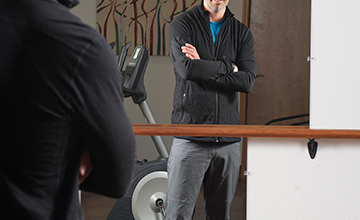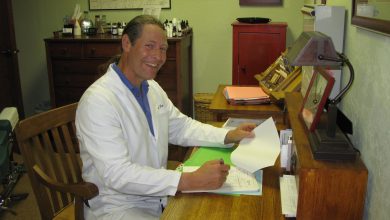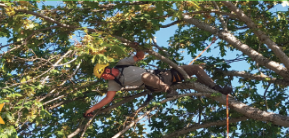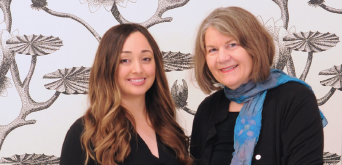Asha Goldstein, LCSW – Deep Counseling for Motivated Adults
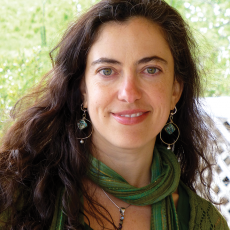 Psychotherapist Asha Goldstein integrates mindfulness, Shadow Work®, and expressive arts with nine years of traditional clinical experience to create authentic and lasting transformation for her clients. Asha’s approach crosses the spectrum from healing depression and anxiety to supporting people in living their greatest potential. With a foundation of great compassion, Asha helps her clients heal shame, build skills for relating to difficult emotions, cultivate deep self-acceptance, and become more effective in their lives. Asha’s counseling, classes, and workshops offer an empowered perspective for vibrant and wholehearted living.
Psychotherapist Asha Goldstein integrates mindfulness, Shadow Work®, and expressive arts with nine years of traditional clinical experience to create authentic and lasting transformation for her clients. Asha’s approach crosses the spectrum from healing depression and anxiety to supporting people in living their greatest potential. With a foundation of great compassion, Asha helps her clients heal shame, build skills for relating to difficult emotions, cultivate deep self-acceptance, and become more effective in their lives. Asha’s counseling, classes, and workshops offer an empowered perspective for vibrant and wholehearted living.
Asha, thanks so much for speaking with me today. I am inspired to learn more about your counseling work and style for working with your clients. Please introduce us to yourself.
Thank you Shields! I think I’ll start by saying that the work I offer to others is very much based on the personal growth work I have done myself. I believe in the idea that I can’t take my clients anywhere that I haven’t been personally. I focus my work on mindfulness and Shadow Work® because they have been the most powerful modalities for my own healing. These approaches are a wonderful combination because they both focus on creating a deep capacity for self-acceptance. The most significant theme of my own journey has been coming to honor and embrace the full spectrum of being human. This means letting go of a lot of “shoulds” and expectations for myself and my life, and finding great enjoyment in the full ride. I learn more each day about how to live peacefully with my own fears, grief, and shame in a way that allows me to be fully alive and to follow my passions. This has been so liberating for me and it brings me great joy to share these discoveries with others. I believe that this kind of radical acceptance and self-compassion is a form of social change. I think the collective sense of inadequacy we feel as a culture drives so much consumerism and oppression. I see my work as a small offering to the healing of our world.
On a more pragmatic level, I can share that I moved to Ashland almost six years ago to be closer to family and to return to the wild landscape of the west coast that I love. I have been a Mental Health Counselor at SOU for the last five years and started Mindfulness Group there for students. I have been transitioning over the last year into private practice and am now at SOU part-time. I have a BA in Environmental Studies with a minor in Dance from Oberlin College and received my master’s degree from Smith College School for Social Work in 2005. In my free time I am most likely to be hiking, dancing, meditating, or sharing time with close friends or family.
Let’s talk about your tag line, Deep Counseling for Motivated Adults. You are talking about a specific type of individual here. Can you please say more about this?
The work that I offer goes to the root of our emotional patterns and our ways of relating with others. It has the potential to create deep and lasting change in a relatively brief amount of time. I find that these approaches work best with adult clients and with people who are clear about their intention for seeking counseling. When people have a clear reason for coming to see me it makes a big difference for what we can accomplish together.
Please tell us about Shadow Work. What is this and how do you work with it?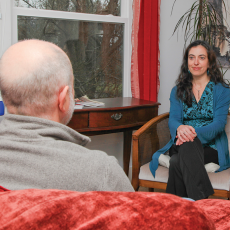
Shadow Work® is a personal growth model developed by Cliff Barry in Boulder, Colorado. In 2007 I discovered a book by Alyce Barry (Cliff’s sister) about her personal experience with Shadow Work®. What I read made so much sense to me that I started doing the work personally and then took the trainings. I have been a certified Shadow Work® Coach since 2010. The New Warrior weekends that a lot of men in Ashland have done are based on the Shadow Work® model. It has similarities to gestalt, psychodrama, and voice dialogue but is its own highly refined process for helping people transform stuck patterns in their lives. Shadow Work® is based on Jungian ideas about how we disown certain qualities of our personalities in childhood in order to maintain safety and connection. It uses four archetypes (sovereign, lover, warrior, and magician) as a model for looking at our strengths and the areas of our life where we are out of balance. The archetypes are also integrated with the Enneagram which is a personality typing system that I believe has great value.
If I were doing a Shadow Work® session with you we would look at an area in your life where you’re feeling stuck and we would get clear about what you want to have happen. We would then get to know the different parts of yourself that are involved in that stuck dynamic. It can be powerful to fully embody your fear about a situation and then to separately embody another part of yourself such as the part that sees the value of doing something with risk involved. This part of the process is like psychodrama, where you actually act out the different parts. Then we step back and look at the way this dynamic is playing out in your life and think about what is needed to resolve the conflict between these parts. There are a number of tools for doing this. One of the ideas of Shadow Work® that I find helpful is that the ways we are most stuck in our lives often come from decisions we made early in life about how to be safe. Shadow Work® offers a perspective for honoring where these stuck behaviors come from and seeing them as an important protective aspect of ourselves. When we try to get rid of these parts of ourselves, they often hold on tighter because they believe that our safety is at stake. By understanding and honoring them we lessen inner conflicts and learn to collaborate with them in the changes we want to make. You can check out shadowwork.com to learn more about Shadow Work®.
I can see that people are often trying to fix themselves and control their emotions and this can be very difficult and often times not successful. Can you please say more about this?
I think one of the great travesties of our time is that most of us don’t learn how to relate with our more difficult emotions. There are so many messages from our families, schools, media, etc. with a strong pressure to be happy and particular ideas of what it means to be successful. These turn into a list of “shoulds” that I think a lot of us walk around with. “I should be happy.” “I should be successful.” “I shouldn’t get angry or sad or afraid.” “I shouldn’t fail.” I think many of us walk through life with the feeling that there is something fundamentally wrong with us. The reality, though, is that these “shoulds” go against the very nature of being human. This is what Buddhism has been teaching for thousands of years, and what mindfulness practice is all about.
It is the nature of being human to feel pain in the form of loss, anger, fear, or grief and to have things not always go according to plan. One of the great truths of life is that everything changes and ends. The more we fight this reality, the more suffering we create. Sometimes people are able to control their lives for a while, and may be quite convinced that this is working for them. Eventually, however, something doesn’t work out and then we are left with this basic reality.
Traditional cognitive and behavioral therapy has been about learning how to control our thoughts and our behaviors and it has done a lot of good for a lot of people. At the same time, these modalities can do a disservice if they don’t get to the root of the problem. When only the symptoms are treated the relief is often temporary. Mindfulness is becoming known as the next wave of cognitive therapy with a very new approach. The idea is that most of us live a lot of the time in experiential avoidance, meaning that we’re trying to avoid what we are experiencing. We become fearful of our fear. We try to depress our sadness. We suppress our anger or we rage at others to try to avoid the pain we are experiencing inside. Mindfulness teaches us how to turn towards our experience with tools that make it a lot more tolerable, and even interesting, engaging, and rich with feeling.
Please talk about what Radical Acceptance is. What does this mean for different people?
This is a phrase I learned from Tara Brach, a meditation teacher and author of the book Radical Acceptance. She defines this approach as “the willingness to experience ourselves and our life as it is.” This perspective means that we don’t need to feel good or peaceful all the time in order to be okay. Sometimes we can just be mindful of how much pain we are in or of how much grief we feel. Radical Acceptance for me is about being willing to experience what is real without trying to escape it. When I practice mindfulness I notice all the subtle and not so subtle ways my mind tries to avoid discomfort. I also notice that as long as I do this there is a tension inside myself, a grasping after something, and an aversion to what is happening. If I can soften into just experiencing what is going on for me, then that tension eases.
Radical Acceptance does not mean becoming complacent in our lives. It is an orientation towards our inner experience that can actually free us up with more capacity to take action for our values in the world. Radical Acceptance does not mean letting people hurt us. Instead it means being willing to notice how we are impacted by others and taking action in response to that awareness. It doesn’t mean we let ourselves act out hurtfully to others, but instead we learn to allow the feeling of hurt or anger inside of ourselves. We learn how to be with it skillfully without having to act on it. Radical Acceptance also does not mean feeling pressure to be accepting of ourselves all the time. It means allowing the ways we get frustrated with ourselves or the ways we want to be different, and relating skillfully with these qualities as well. I see it as a practice of continually widening the circles of what we can accept in ourselves, especially the qualities that are contradictory to how we think we should be.
What are some of the biggest challenges that you see clients facing these days? What are some life situations that bring people to you?
There are a lot of challenges inherent to being human at this time in our world. There is a lot to be fearful, sad, and angry about in our world. From this perspective, anxiety and depression can be logical responses. One of the areas that engage me as a counselor is how to live well in this world with all of its difficulties. There are many ways that anxiety and depression and other kinds of emotional distress can take over our lives and keep us from living the lives we want. Relationships of any kind can bring up all kinds of difficult dynamics around communication and conflict, attachment and trust, freedom and security.
I see a lot of people dealing with anxiety, shame, depression, grief and loss, trauma, social anxiety, and family or relationship conflict. I see people who are struggling with life transitions and decision-making, stress, loneliness, codependency, and addictions of all kinds. These labels can make it seem that these things happen to “those other people out there” when in fact we all experience many of these things in our own way at one time or another. I see my work as giving people resources and tools for being human rather than treating particular emotional disorders.
Another area that I see a lot of people struggling with is stepping into their own strengths and passions. It can be risky to let ourselves go for what gives us the most joy. In Shadow Work® we call this our “golden shadow.” The idea is that we often learn in our families or schools that we will get criticized or rejected for being too big, too happy, too expressive, or too passionate. I love helping people work through the steps to reclaim these aspects of themselves. It is so rewarding to see people accessing their greatest aliveness.
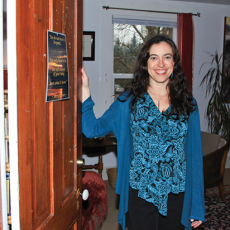 Can you talk about some of the characters you see within yourself and how you work with them to have more of a harmonious life?
Can you talk about some of the characters you see within yourself and how you work with them to have more of a harmonious life?
Through my personal experience with Shadow Work® I’ve come to know how the archetypes of the lover, warrior, magician, and sovereign exist inside of me. I know that lover (emotions and empathy) and warrior (will and boundaries) are the archetypes I embody most easily, whereas much of my personal work has been about learning how to access the mental perspective and clarity of the magician and the confidence and trust of the sovereign. I can easily say that I have a lot more access to these qualities than I used to and it feels wonderful to live with this greater balance. Shadow Work® has helped me to understand and honor my different emotions. It has given me a map for how I can connect with the qualities of the magician and sovereign when they are missing. Both Shadow Work® and mindfulness practice have given me the strength and tools to be open to the wide variety of emotions that arise inside of me. I use mindfulness to go inwards and give presence and compassion to discomfort when it arises. Often it is a part of me that didn’t get its needs met when I was younger and is still having a lot of feelings about that. When I can give my kind attention to this part of myself it helps it to feel more safe and heard and then the distress often diminishes.
Asha, what are some of the reasons why your clients choose to work with you?
People are inspired by the focus on radical acceptance and embracing our full human experience. This can feel freeing for people who have been trying hard to “fix” themselves for years. In embodying this perspective myself, I am able to offer a nonjudgmental perspective for others and this helps people feel safe. My presence and way of relating to people is very warm and welcoming. People also like that I am authentic. I strive to balance a sense of being professional with also being real, human, and accessible. Lastly, it seems people sense that they can go deep with me because I can stay present with and am not afraid of strong emotions.
Please talk about judgment and shame.
One of the things I love about Shadow Work® is that the model is intentionally designed not to perpetuate more shame for people. Brene Brown defines shame as the belief “I am bad” versus guilt which is the idea “I did something bad.” I think we all feel shame. However, our natural inclination to try and fix or get rid of certain aspects of ourselves just exacerbates that shame. Shadow Work® is based on letting the participant guide the process. I believe that this makes the work far more healing because it doesn’t perpetuate a model in which the counselor is the expert and always knows what is best for the client. Shadow Work® is also based on building strength in the areas where there are deficits rather than trying to decrease the areas where there is an overabundance. For example, if a client is lost in their emotions, I try to help them find balance with qualities of inner strength, perspective, and self-worth rather than trying to teach them how to suppress their feelings.
What do you enjoy the most about what you are doing?
I love offering a perspective for people’s lives that can be so liberating. I am deeply nourished by the exploration of the psyche and by creating more aliveness in the world. The work I am doing in private practice comes from my greatest passions and strengths. It is very rewarding to feel that I am offering all of myself, at my full capacity, and that it is genuinely touching other people’s lives in a powerful way.
Can you please give us an overview of the scope of services that you offer?
I offer individual counseling and Shadow Work® Coaching in my Ashland office or via Skype. I also teach classes on topics related to radical acceptance, offer a monthly mindfulness group focused on self-compassion, and give free public talks in the community. I co-created a weekend workshop with artist Zoe Alowan (who happens to be my mother) that we call Creative Acts of Power. I also offer a daylong retreat called ReWilding the Body: Reconnection and Creative Expression in Nature. I love creating classes and workshops and am always coming up with new offerings so stay tuned!
Please tell us more about your mindfulness work.Mindfulness is becoming a highly respected therapeutic modality as more and more research is being conducted. One definition of mindfulness that I like from Jon Kabat-Zinn is “paying attention in a particular way; on purpose, in the present moment, and nonjudgmentally.” When we pay attention to the present moment, our thoughts and emotions can be distilled down to sensations in the body. Mindfulness offers tools for working with those sensations so that they aren’t overwhelming. Focusing on the breath is a way of bringing attention to the body in a very soothing way. This can be a great resource for working with anxiety, stress, or trauma. Often when someone is experiencing a difficult emotion, there is an actual physical sensation connected to that emotion in the body. Through being curious about the sensation(s) we discover that we can experience these emotions as pressure or aching, as coolness or warmth. When the meaning is removed, the sensations become a lot more tolerable. For clients who have experienced trauma, I teach how to use the breath and focusing on their senses to ground themselves into the present moment. Mindfulness can ultimately help us discover that even the most intense emotions can be experienced at a physical level without any threat to our emotional or physical safety. I practice these principles and practices in my own life on a daily basis and I find that they have made a tremendous difference. This is how I can so confidently offer them to others and know that they have great value.
You describe yourself as a facilitator can you please say more?
I listen for the places where people might be stuck and gently facilitate a process using the tools and techniques that best align with where they are in that moment. I bring deep presence, compassion, and care to the people I work with. I notice the places where they keep getting stuck in their ways of thinking about themselves or the world. I feel into whether a person might do best with mindfulness exploration, Shadow Work®, or more traditional talk therapy. I am always looking for the map that will help the person I am working with get where they want to go. When I facilitate classes or workshops I focus on making them very experiential. I love the process of crafting an experience for people so that they get to feel more connected to themselves, more alive and free, and more empowered to create what they want in their lives.
You have some workshops and events coming up. Can you please tell us about them?
I have a free public talk called “Radical Acceptance through Embracing Our Shadows” on Monday, February 3rd at the Ashland Public Library from 7-9 PM. I also offer a Self-Compassion Mindfulness Group on the 3rd Monday of every month from 6-7 PM. The next group will be on February 17th. Cost is $8. The group is limited to eleven people so I ask for preregistration by email or phone.
As previously mentioned, artist Zoe Alowan and I are offering a weekend workshop called Creative Acts of Power: Reclaiming Authentic Expression with Paint, Movement, and Song from Friday, February 28th through Sunday, March 2nd at Hidden Springs Wellness Center. We offered this workshop three times last year and had an amazing response. This workshop is open to all genders. Zoe facilitates an incredible way of painting freely from our internal impulses without fear of judgment and without focusing on outcome. I facilitate improvisational movement and song based on freely allowing authentic self-expression. We create a lot of safety for people to take risks without being judged by one another. I offer brief individual Shadow Work® sessions during the workshop to help people work through their fears and creative blocks. Our creativity can get so shut down by receiving criticism early in life and this can lead to shutting down our vitality and self-expression. It is so amazing to witness people taking risks and feeling a renewed access to these important parts of themselves.
Starting in March I will be offering a Radical Acceptance of Our Emotions series on the first Monday of the month through June. These classes will focus on learning how to honor, accept, and work with our sadness, anger, fear, and joy. On Monday, March 3rd the class will be on Radical Acceptance of Our Sadness. These classes are from 7-9 PM. Cost per class is $20. Class size is limited so I ask for preregistration by phone or email.
Finally are there any last thoughts you would like to share with our readers?
I am happy to offer a free 15-minute phone consultation for anyone who would like to know more about my work and whether it might be a good fit for them. I’m also offering a special for first time clients who read this interview of a 90-minute session for the price of an hour. Ninety minute sessions are great for doing a solid piece of Shadow Work® in one meeting. I also offer sliding scale rates and bill insurance as an out-of-network provider.
Learn More:
Asha R. Goldstein, LCSW
223 5th Street, Ashland
ashagoldstein.com
(541) 646-0828
ashagoldstein@gmail.com

